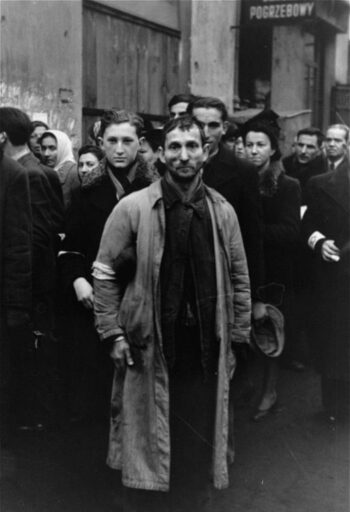Exhibition Mémorial de la Shoah: Scenes from the Ghetto

November 13, 2013 – September 28, 2014
Between 15,000 and 20,000 photographs were taken in the ghettos
during World War II. What is the meaning of these pictures?
Propaganda? Testimony? Resistance? Denunciation for History?
The answers may be found in the context of the photos as well as in
the personality of the photographers.
The exhibition Scenes from the Ghetto of EHRI partner Mémorial de la Shoah presents an historical analysis of the
photographs from collections preserved all over the world and
including pictures from many different ghettos. Aside from the
large ghettos like Warsaw, Lodz or Kovno, more than 400 other
ghettos existed. These photographs relate the history of the
confinement and slow death of several hundreds of thousands
Jews in the ghettos.
Photographic documentation
World War II started with the invasion of Poland in
September 1939. In the countries annexed to the East, the German
army assembled the Jewish inhabitants in ghettos that rapidly
became overpopulated and unsanitary.
The ghettos were liquidated in 1942-1943, marking the first step in
the genocide of Central European Jews and the inhabitants
transported to death camps.
Although the extermination process was put in place in great
secrecy by the Nazi authorities, the first phase has, paradoxically,
left considerable photographic documentation.
Read the Press Release Scenes from the Ghetto
Photo:
A group of Jewish men without their hats
in front of the German photographer.
Warsaw ghetto. Summer, 1941.
Photographer: Willy Georg
© United States Holocaust Memorial Museum
